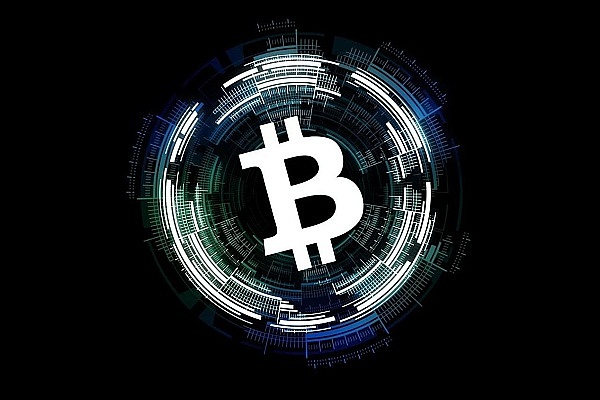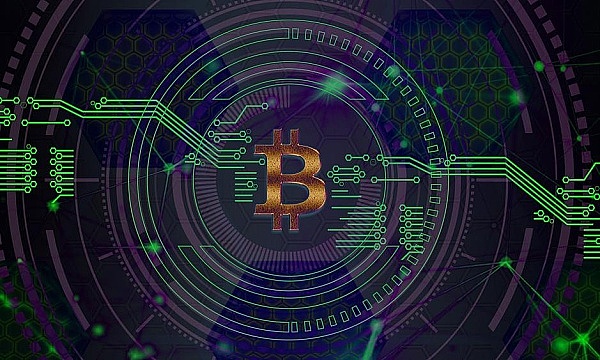On February 24 this year, the "China Prosecutor" public account published an article titled "A Detailed Analysis of Suspicious Cases | Judicial Identification of Money Laundering Involving Virtual Currency", written by two prosecutors from the Changning District Procuratorate of Shanghai. It introduced a case in which a very common and typical over-the-counter transaction in virtual currency transactions was identified as a crime of concealing and concealing criminal proceeds. Lawyer Liu wrote this article to make a brief analysis, and it is also a risk warning for friends who are doing U-business.
1. What did the U-business involved in the case do?
As a U-business, Xiao Mou met the boss of a running group on "Telegram", named "Big Shanghai". "Big Shanghai" withdrew the fraud funds through Canon and found Xiao Mou to buy USDT Tether. Xiao Mou bought a large amount of USDT at a price 2 cents higher than the exchange, and then sold it to "Big Shanghai" at a price of 5 cents higher. The prosecutor also carefully brought up the transaction details between Xiao and "Da Shanghai" when writing the article. For example, when the two parties traded offline, Xiao would first transfer 100 yuan worth of USDT to the wallet address of "Da Shanghai" after counting the cash on site. When "Da Shanghai" confirmed that it had received the USDT to ensure that the transaction channel was smooth and safe, Xiao would transfer the remaining USDT. As of the time of the incident, Xiao had made a total profit of more than 6,000 yuan, and was eventually sentenced to 3 years and 3 months in prison by the court for concealing and concealing the proceeds of crime.

Second, different opinions on whether U-merchant profiting from price difference constitutes a crime
Xiao's behavior is a typical case of U-merchant profiting from price difference, but he was arrested for not doing KYC. Although the profit was only 6,000 yuan (it seems that this amount is really embarrassing to mention in the currency circle), the loss of 3 years and 3 months of freedom is real.
There are two different opinions on whether Xiao's behavior constitutes a crime, namely, innocent and guilty:
The innocent group believes that Xiao did not know that the cash taken out by "Da Shanghai" was stolen money, and ignorance is innocent; in addition, Xiao used virtual currency to trade with "Da Shanghai", and whether virtual currency can be used as a tool or object of crime is still controversial in China.
The guilty group argues that Xiao obviously constitutes a money laundering crime, and should be specifically identified as the crime of concealing and hiding the proceeds of crime. Xiao's behavior has an obvious intention to evade investigation, such as using encrypted software to communicate, the transaction price is higher than the market price, the transaction frequency is relatively fixed, and the location is relatively hidden, etc. It can be inferred that he knew that the money of "Da Shanghai" came from an illegal source; in addition, virtual currency has economic value and is a criminal object or tool of crime in criminal law.

III. Determination of “knowingly” in the elements of concealment crime
In this case, Xiao committed the crime of concealing and hiding the proceeds of crime. This crime requires “knowingly hiding, transferring, purchasing, and selling on behalf of others the proceeds of crime and the profits generated by it”. Therefore, for the majority of U-merchant friends, it is very important for you to know whether the funds involved in each transaction are the proceeds of crime.
There are at least two ways for judicial authorities to examine whether a party was aware of the situation: one is direct questioning, which can be legal and compliant, or illegal, such as inducement or deception. As long as the person being questioned admits that he knew that the counterparty's funds were proceeds of crime, then in current judicial practice, the subjective factor that the party was aware of the situation has basically been "confirmed." As for whether the records of the parties who were induced or deceived into confessing can be excluded, it depends on whether the parties can produce evidence to prove that they were induced or deceived into confessing. The second is presumption of knowledge, that is, even if the parties themselves do not admit that they knew, no matter how the police interrogate them, the parties are as stubborn as steel, then the judicial organs will verify whether the parties knew from other aspects, such as:
(a) without a legitimate reason, assisting in the conversion or transfer of property through illegal means;
(b) without a legitimate reason, purchasing property at a price significantly lower than the market price;
(c) without a legitimate reason, assisting in the conversion or transfer of property and charging a "handling fee" significantly higher than the market price;
(d) without a legitimate reason, assisting others in storing huge amounts of cash in multiple bank accounts or frequently transferring between different bank accounts;
(V) Assisting close relatives or other close persons to convert or transfer property that is obviously inconsistent with their occupation or property status.
Once a party is presumed by the judicial authorities to have known that the counterparty's funds are proceeds of crime and still traded with them, then the party is not far from crimes such as aiding and abetting, concealing, and money laundering. In the view of the Changning Procuratorate, Xiao, as a veteran in virtual currency trading, lacked a trusting basis with "Da Shanghai" whom he met through "Telegram", and still "deliberately bypassed more mature virtual currency trading venues, used concealed software to contact and met in a concealed location to collect the other party's money, and then deposited the received money into the other party's account in the form of virtual currency" and charged a handling fee higher than the market, which was obviously a crime of helping the other party to launder money and conceal the proceeds of crime.

Fourth, Conclusion
Nowadays, the days of U merchants are getting more and more difficult. It is originally a gray market. With the increasingly fierce market competition, the profit margin has been continuously compressed. Now the judicial authorities have begun to keep a close eye on the every move of U merchants, and they will be "severely punished" if they are not careful. Lawyer Liu is not sure whether the future road will be "smooth at the end of thorns" or "steep cliffs with no end", but for the majority of U merchants, it seems that they can still hold on for a while to repair the road under their feet. As for how to repair it? That is to refer to Xiao and do the opposite: use domestic communication software, do not charge fees significantly higher than the exchange, do a good job of KYC for the counterparty, etc. If you are really unsure, consult Lawyer Liu.
 Catherine
Catherine










